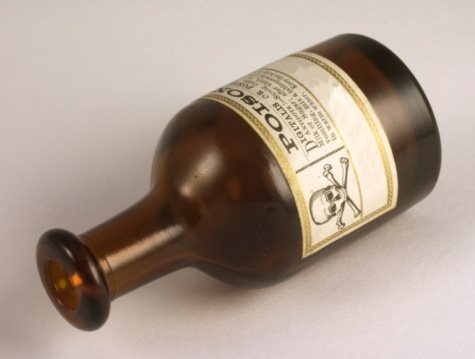Voluntary Manslaughter
What is Voluntary Manslaughter?
Voluntary Manslaughter is defined as the purposeful killing of one individual at the hands of another individual. However, a primary separation between Voluntary Manslaughter and murder reveals itself as the absence of forethought, malice, or premeditation with regard to a Voluntary Manslaughter charge. Crimes of passion, which are typical in Voluntary Manslaughter cases, are defined as crimes that take place with violent or criminal intent. Yet the nature of these crimes are impulsive and oftentimes retain little-to-no planning or deliberation.

Voluntary Manslaughter Offense Profile
Legal Jurisdiction: Criminal Law
Type of Crime: Voluntary Manslaughter charges are typically felonies
Criminal Code: Varies upon the location of the crime, including the applicable country, nation, state, or province
Range of Punishment(s): Fines, probation, associated penalties, or incarceration – varies upon case details
Duration of Punishment(s): Varies upon case details
Applicable Punishment(s): Varies upon individual intent, criminal record, criminal history, and the victim(s) involved. In the event of a Voluntary Manslaughter charge, crimes of passion are typically the most commonly occurring. The punishment(s) associated with crimes of punishment are oftentimes less severe than those associated with premeditated crime(s).
Voluntary Manslaughter Allegations: Terminology and Associated Offenses
The following are commonly associated with charges of Voluntary Manslaughter:
Malice Aforethought: Harmful and deliberate intentions with regard to a killing.
Murder: Although both murder and Voluntary Manslaughter include the premature termination of a life, the notion of intent is the primary differentiation between the two crimes in question. Murder retains the inclusion of malice aforethought or intent, while Voluntary Manslaughter occurs unknowingly, accidentally, and without premeditation.
Voluntary Manslaughter: The termination of a life of an individual in which there was no premeditation, but the individual charged with Voluntary Manslaughter acted willfully and purposefully.
Intent: Intent is legally defined as the intended result for which one hopes as a result of any individual actions or activity. In the event of an Involuntary Manslaughter charge, the prosecuting attorney is responsible to prove that suspect acted knowingly and deliberately in their respective actions resulting in the death of the victim(s) involved.
Crime of Passion: A crime committed as the result of overwhelming emotion in lieu of premeditation, malice, or violent tendencies. This type of crime is considered to be impulsive in nature.
Wrongful Death: The analogous charge of Involuntary Manslaughter in a civil court.
Arrest Process for Voluntary Manslaughter
Individuals who have been served documentation in the form of an arrest warrant displaying a Voluntary Manslaughter charge, or have already been arrested by law enforcement agents, are encouraged to cooperate with the arresting officers regardless of personal belief with regard to the charges. Individuals under arrest will be given the opportunity to consult with legal specialists subsequent to the arrest process. Resisting or fleeing from a Voluntary Manslaughter arrest can result in harm, injury, and additional penalties. Upon arrest, an individual should be made aware of the following in order to prevent any further complication(s):
Habeas Corpus
Due Process
The Presumption of Innocence.
Upon the arrest for a Voluntary Manslaughter charge, this is the standard arrest protocol that must be upheld by any and all arresting officers. Miranda Rights include the Fifth Amendment, which states that an individual retains the right to remain silent in order to avoid incriminating themselves. This is also known as ‘pleading the Fifth’. In addition, Miranda Rights also guarantee the following rights with regard to an arrest:
The right to remain silent
The right for any words spoken during the arrest to be admissible during a trial
The right to consult with an attorney regardless of financial stature
The acknowledgement that the individual arrested for the Voluntary Manslaughter charge understands the aforementioned rights.
The Preparation of a Voluntary Manslaughter Defense
Individuals are encouraged to consult with attorneys specializing in criminal law and, if possible, those who focus on Voluntary Manslaughter legality, criminal law, and defense. In the construction of a defense, the individual may be asked to provide the nature of the Voluntary Manslaughter in question, any included threats, the biographical information with regard to any and all victims, any previous arrests and/or convictions, evidence and witness testimony, full account of the details surrounding the event in question, and the arrangement for bail or bond.
Criminal Law vs. Civil Law: Voluntary Manslaughter
Individuals arrested on charges Voluntary Manslaughter should be made aware that in the event that an acquittal takes place within a criminal court, the case can be retried by the plaintiff in a civil court. Although civil law and criminal law with respect to Voluntary Manslaughter allegations differ, the primary difference is the compensatory measures that present themselves in the event of a guilty verdict.
While criminal law verdicts can impose penalties including punitive recourse and incarceration, guilty verdicts in the scope of civil law can only render financial and monetary restitution. Voluntary Manslaughter tried within a civil court is considered to be a Wrongful Death lawsuit